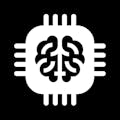I propose reducing the time that I spend in front of the PC. For that goal, I need to measure that time.
I decided to design a device that measures the time that an object stays in front of my computer.
I have used Adafruit IO platform to store and display the data in a dashboard.
In this post, I explain how I did that device.
/* Create by: Ricardo Concepcion
website: https://www.rjconcepcion.com
*/
// Libraries
#include <ESP8266WiFi.h>
#include <NTPClient.h>
#include <WiFiUdp.h>
#include "config.h"
const char *ssid = "YOUR_WIFI_NAME";
const char *password = "YOUR_WIFI_PASSWORD";
// Define NTP Client
WiFiUDP ntp;
NTPClient timeClient(ntp, "pool.ntp.org");
const int trigger = 4; // D2 Pin connect to sensor trigger pin
const int echo = 5; // D1 pin connected to sensor echo pin
const int max_dist = 200; // max distance in cm
// Variables
int hour;
int minutes;
int dist = 0;
float tiempo = 0;
AdafruitIO_Feed *tiempo_feed = io.feed("tiempo_feed");
void setup() {
// Initialize Serial Monitor
Serial.begin(9600);
// Connect to Wi-Fi
Serial.print("Connecting to ");
Serial.println(ssid);
WiFi.begin(ssid, password);
while (WiFi.status() != WL_CONNECTED) {
delay(500);
Serial.print(".");
}
pinMode(trigger, OUTPUT);
pinMode(echo, INPUT);
// connect to io.adafruit.com
Serial.print("Connecting to Adafruit IO");
io.connect();
// wait for a connection
while(io.status() < AIO_CONNECTED) {
Serial.print(".");
delay(500);
}
// we are connected
Serial.println();
Serial.println(io.statusText());
// Initialize NTPClient
timeClient.begin();
// Offset time is the different between 0 GMT and your time zone. In my case is -4 GMT. It is equal to -14400.
timeClient.setTimeOffset(-14400);
}
void loop() {
//
io.run();
timeClient.update();
// Get hour
hour = timeClient.getHours();
Serial.print("Hour: ");
Serial.println(hour);
// Get minutes
minutes = timeClient.getMinutes();
Serial.print("Minutes: ");
Serial.println(minutes);
// get the distance between the sensor and the object
dist = ping(trigger, echo);
Serial.print(dist);
Serial.println("cm");
// if the distance is lower than 100 cm then count the time
if(dist < 100) {
while (dist < 100) {
delay(60000); // wait for one minute
tiempo += 1; // increase the counter
dist = ping(trigger, echo);
Serial.println(dist);
timeClient.update();
hour = timeClient.getHours();
minutes = timeClient.getMinutes();
io.run();
// if the time is 00:00 then send the data to Adafruit IO
if((hour == 0 && minutes == 0)){
Serial.println(tiempo);
Serial.println("Se envia a Adafruit");
tiempo_feed->save(tiempo);
tiempo = 0; // restart the counter
}
}
}
// if the time is 00:00 then send the data to Adafruit IO
if(hour == 0 && minutes == 0){
tiempo_feed->save(tiempo);
tiempo = 0;
}
Serial.println(tiempo);
delay(60000);
}
int ping(int TriggerPin, int EchoPin) {
long duration, distanceCm;
digitalWrite(TriggerPin, LOW); // 4us LOW pulse
delayMicroseconds(4);
digitalWrite(TriggerPin, HIGH); // 10us HIGH pulse
delayMicroseconds(10);
digitalWrite(TriggerPin, LOW);
duration = pulseIn(EchoPin, HIGH); // mesure time between pulses, result in microseconds
distanceCm = duration * 10 / 292/ 2; // Change distance to centimeters
return distanceCm;
}
/************************ Adafruit IO Config *******************************/
// visit io.adafruit.com if you need to create an account,
// or if you need your Adafruit IO key.
#define IO_USERNAME "ADAFRUIT_IO_USERNAME"
#define IO_KEY "IO_KEY"
/******************************* WIFI **************************************/
// the AdafruitIO_WiFi client will work with the following boards:
// - HUZZAH ESP8266 Breakout -> https://www.adafruit.com/products/2471
// - Feather HUZZAH ESP8266 -> https://www.adafruit.com/products/2821
// - Feather HUZZAH ESP32 -> https://www.adafruit.com/product/3405
// - Feather M0 WiFi -> https://www.adafruit.com/products/3010
// - Feather WICED -> https://www.adafruit.com/products/3056
// - Adafruit PyPortal -> https://www.adafruit.com/product/4116
// - Adafruit Metro M4 Express AirLift Lite -> https://www.adafruit.com/product/4000
// - Adafruit AirLift Breakout -> https://www.adafruit.com/product/4201
// - Adafruit AirLift Shield -> https://www.adafruit.com/product/4285
// - Adafruit AirLift FeatherWing -> https://www.adafruit.com/product/4264
#define WIFI_SSID "NOMBRE_WIFI"
#define WIFI_PASS "CLAVE_WIFI"
// uncomment the following line if you are using airlift
// #define USE_AIRLIFT
// uncomment the following line if you are using winc1500
// #define USE_WINC1500
// comment out the following lines if you are using fona or ethernet
#include "AdafruitIO_WiFi.h"
#if defined(USE_AIRLIFT) || defined(ADAFRUIT_METRO_M4_AIRLIFT_LITE)
// Configure the pins used for the ESP32 connection
#if !defined(SPIWIFI_SS) // if the wifi definition isnt in the board variant
// Don't change the names of these #define's! they match the variant ones
#define SPIWIFI SPI
#define SPIWIFI_SS 10 // Chip select pin
#define NINA_ACK 9 // a.k.a BUSY or READY pin
#define NINA_RESETN 6 // Reset pin
#define NINA_GPIO0 -1 // Not connected
#endif
AdafruitIO_WiFi io(IO_USERNAME, IO_KEY, WIFI_SSID, WIFI_PASS, SPIWIFI_SS, NINA_ACK, NINA_RESETN, NINA_GPIO0, &SPIWIFI);
#else
AdafruitIO_WiFi io(IO_USERNAME, IO_KEY, WIFI_SSID, WIFI_PASS);
#endif
/******************************* FONA **************************************/
// the AdafruitIO_FONA client will work with the following boards:
// - Feather 32u4 FONA -> https://www.adafruit.com/product/3027
// uncomment the following two lines for 32u4 FONA,
// and comment out the AdafruitIO_WiFi client in the WIFI section
// #include "AdafruitIO_FONA.h"
// AdafruitIO_FONA io(IO_USERNAME, IO_KEY);
/**************************** ETHERNET ************************************/
// the AdafruitIO_Ethernet client will work with the following boards:
// - Ethernet FeatherWing -> https://www.adafruit.com/products/3201
// uncomment the following two lines for ethernet,
// and comment out the AdafruitIO_WiFi client in the WIFI section
// #include "AdafruitIO_Ethernet.h"
// AdafruitIO_Ethernet io(IO_USERNAME, IO_KEY);
11 projects • 8 followers
Electronic is my passion. I like to work with programming devices like Arduino, ESP8266, Raspberry Pi. I enjoy design electronic projects.








Comments
Please log in or sign up to comment.